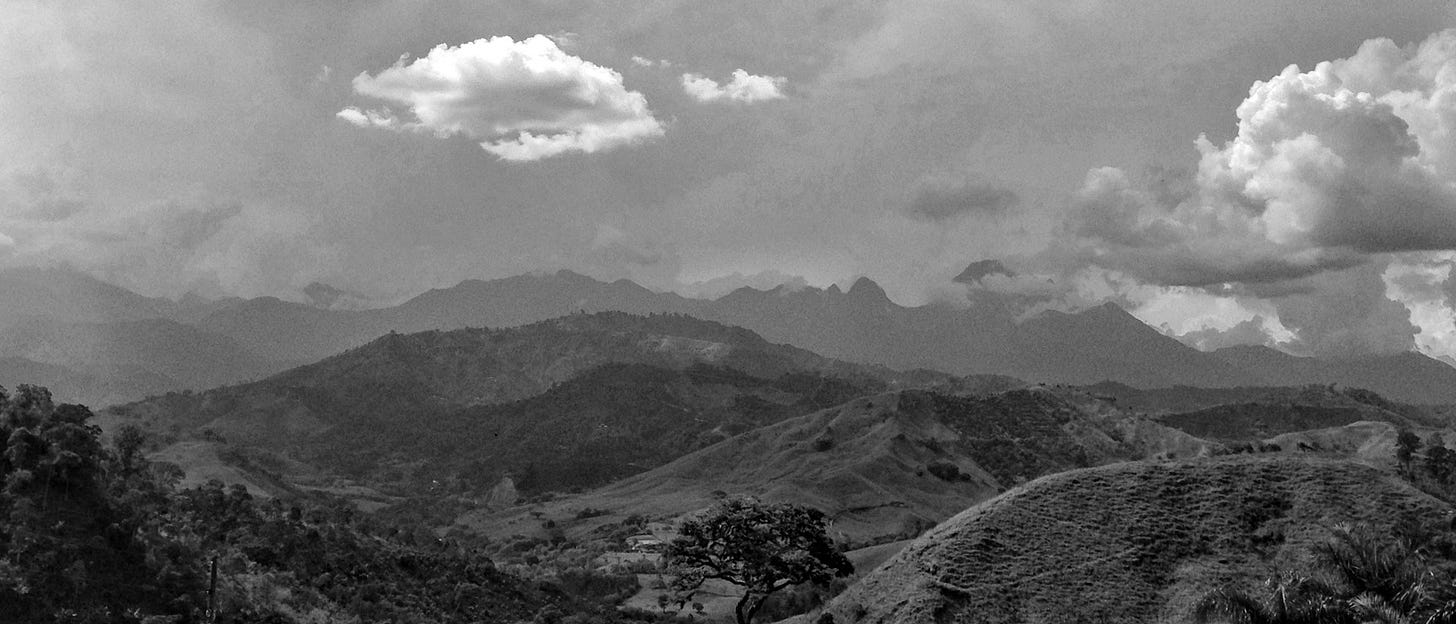Coffee News Roundup: Week Ending February 26th
SCA cancels the 2021 World of Coffee; a soccer club debuts a shirt made from coffee; and coffee might help prevent prostate cancer.
After last week’s special Coffee & Health edition we return to our usual programming.
Is anything happening in the world of coffee? Let’s find out.
SCA Cancels 2021 World Of Coffee Event In Athens - via Daily Coffee News
In a probably unsurprising announcement, the Specialty Coffee Association (SCA) is cancelling this year’s World of Coffee, scheduled to take place in Athens in June.
The World of Coffee encompasses the annual SCA European trade show as well as the World Coffee Championships, and its 2021 fate has been under discussion for some time. In its announcement, the SCA said: “We are sad to cancel WOC but remain committed to doing what is best for the health of our staff and the many thousands of professionals that come together at this event every year.”
The SCA says that it is looking into alternative ways to host the various World Coffee Championships outside of the main World of Coffee Event, and seems keen to move forward with its US event, the Specialty Coffee Expo, in New Orleans this September.
Forest Green Rovers Hope Recycled Coffee Kit Will Prove A Good Fit - via CNN
Here’s a story made in a lab to appeal to the Pourover, where three of my main interests collide: soccer, coffee, and sustainability (or perhaps greenwashing depending on your viewpoint).
Forest Green Rovers is an association football club playing in England’s League Two (that’s the third division) that has forged a reputation for environmental innovation: owned by a green energy entrepreneur, the club serves only vegan food on match days at a ground run on renewable energy, and has an organic pitch irrigated with recycled water.
The latest innovation is a new kit made from coffee waste, building on their previous bamboo kit. “These shirts are more sustainable because while bamboo is renewable and you can grow more, coffee is a waste product and the shirts will be completely recycled,” club chairman Dale Vince said.
Currently, top level modern sports kits are made from plastic and, obviously, aren’t exactly sustainable. Of course, soccer itself is incredibly unsustainable, what with the constant travel, enormous stadia, and Gazprom sponsorships.
For that reason alone, even if this coffee kit thing smells a bit like greenwashing, at least it’s something—and Forest Green Rovers in general are doing a good job of raising awareness of these sorts of issues.
Resurfaced Violent Muppet Killings Give Bygone Brand Wilkins Coffee A Moment - via Daily Coffee News
Here is an article about a series of ads that Jim Henson did for a coffee company called Wilkins Coffee.
This is definitely not news—it’s really just an excuse to watch a puppet named Wilkins find new and exciting ways to murder a puppet named Wontkins.
You’re welcome.
More Headlines
Ethiopia Cup of Excellence Sample Entries Break Competition’s Global Record
Abstracts Sought For 2021 ASIC Global Conference On Coffee Science
Venezuelan Migrants Providing Crucial Labor In South America
The Week In Corporate Coffeewashing
Illycaffè is very proud of its inclusion on the annual list of World’s Most Ethical Companies, put together by something called the Ethisphere Institute.
In quotes for this announcement, chairman Andrea Illy trumpets the company’s environmental achievements, saying, “One of our current major focus is reducing our environmental impact throughout the entire supply chain . . . We are proud to be recognised by the Ethisphere Institute for our stewardship and commitment to ethical business practices and thank them for their continued role in inspiring companies to be and do their best for the world.”
The list, a yearly rundown of companies deemed especially ethical by Ethisphere, has been going since 2007 and is “grounded in Ethisphere’s proprietary Ethics Quotient” according to Global Coffee Report. Basically they use self-reported answers to questions on culture, governance, environmental and social practices, diversity, and more.
All well and good. But then there’s this article from 2010 in Slate that raises some interesting points about Ethisphere and the yearly list. “If past years are any indication, the winners will have their press releases ready to go, and news outlets across the country will eat it up,” the article begins. “There’s just one hitch: These ethics awards—let’s call them the Ethies—may have ethics issues of their own.”
For example, there’s the fact that the institute is a for-profit consulting business that works with some of the companies named on its “most ethical” lists. Then there’s the advisory panel which, at least in 2010, included several advisors who didn’t actually know they were on it.
In the past 11 years things might have changed, of course, and according to Global Coffee Report, this is the ninth straight year that Illycaffè has been “honored”. But it’s still weird to trumpet your ethical award from a for-profit company that is quite opaque about how it makes its decisions, and especially weird to brag about environmental achievements when some of the other “honorees” are, well, let’s see.
The 2021 list includes such ethical and sustainable luminaries as Pepsico (one of the top three plastic polluters in 2020), cruise ship operator Royal Caribbean Group, multilevel marketing company Avon, a number of banks and healthcare companies, and Tata Steel.
Is Coffee Good For You?
After last week’s smorgasbord of health news, you’d think that we’d be scraping the barrel looking for coffee-and-health type stories. But you’d be wrong!
Building on previous studies that showed coffee helping to slow the spread of prostate cancer, new research finds that drinking everyone’s favorite beverage might actually lower your risk of developing the disease in the first place.
The new study, a meta-analysis of 16 previous studies involving over a million participants, found that drinking coffee was associated with lower instances of developing prostate cancer—and the more coffee the better: “Compared with the lowest intake, higher amounts were associated with a 7% lower risk of localized prostate cancer and about 15% lower risk for advanced cancer.”
As Sprudge points out, the link is purely observational and the researchers can’t prove causality, but they do think that two of the compounds responsible are kahweol and cafestol. That’s right, cafestol—the compound that last week we were told is cholesterol-elevating and linked to instances of heart disease.
I’m confused.
What To Read
Cafe Ruisseau And The Meaning Of Legacy by Michelle Johnson
American Coffee Culture Is Finally Slowing Down by Jessica Sulima
Coffee Shops, Once The Final Frontier For Unions, Move To The Front Lines by Alex Nguyen
Until next week, drink good coffee. Support your local coffee roaster. Wear your mask.






